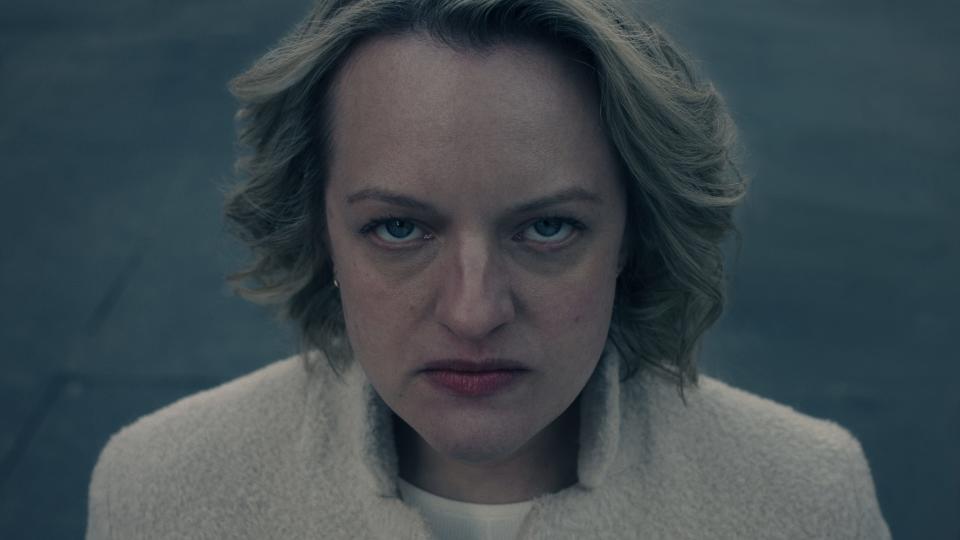Does 'The Handmaid's Tale' hit differently after the fall of Roe v. Wade?
The Handmaids are back — on screen, that is.
You've seen the red robes and white bonnets at protests for abortion rights and on social media, and originally on the Hulu series "The Handmaid's Tale," based on the novel by Margaret Atwood. Now, three months after the Supreme Court struck down the constitutional right to an abortion, "The Handmaid's Tale" is coming back for its fifth and penultimate season (Hulu recently announced a renewal for a sixth and final season).
The series does not have the zeitgeist and Emmy awards and domination it had in early seasons, but it is still one of Hulu's highest profile series and a cultural touchstone. Imagery and quotes from the series and the book it's based upon have also repeatedly been brought up in the real world – on the internet and in person – since the Dobbs vs. Jackson Women's Health Supreme Court decision this summer.

So what does Season 5 look like in our new new world? Is it a rallying cry for pro-abortion advocates? A dire warning for those concerned about rights slipping away? Is it even a good TV show at all?
Mostly, "Handmaid's" is "Handmaid's," an imperfect allegory and messy TV show with themes that will likely resonate even more than before. But if you're looking for a TV show that truly reckons with abortion rights, there are others with more nuance and perspective.
More: 'Handmaid's Tale' book is a post-Roe v. Wade bestseller
Those who tune in looking for a rallying call will be met with a TV show at a turning point, one that cares less about the big questions and more about the violent drama it has immersed its protagonist, June (Elisabeth Moss). Season 5, shot long before the Dobbs decision, opens where Season 4 concluded, (spoiler alert) after June led the mob killing of Gilead Commander Fred Waterford (Joseph Fiennes). The aftermath is bloody and messy, as June and her husband Luke (OT Fagbenle), reckon with what she's done. It also has political ramifications, including the status of Serena (Yvonne Strahovski) and the growing pro-Gilead movement in Canada.
If it sounds complicated and not much like the images of "Handmaid's" you might remember from the early seasons, that's because the series long ago divorced itself from its pure feminist and allegorical origins in Atwood's book, turning into a dystopian thriller with blood, torture and pain on display for titillation and shock. There are still moments in the series that point out truths, that offer universals and catharsis and anger about relatable political themes. One of those was about abortion in a Season 4 flashback in which Janine (Madeline Brewer) accidentally winds up at a crisis pregnancy center that tries to scare and shame her out of having an abortion. She is eventually able to get a medical abortion from a doctor.
So what is it like watching "Handmaid's" in the fall of 2022? It is still dark, depressing and violent. The themes will remind you of current politics and fears. It may or may not entertain you, depending on if you can stick around for enough episodes for the writers to finally get a handle on the story.
Whatever it is, it is not the cultural rallying point of our current era, but simply a fading TV juggernaut. For insight into the way we live now, we'll have to look elsewhere.
More: Abortions in TV, film started with hysteria, then became (mostly) accurate. But what now?
This article originally appeared on USA TODAY: 'The Handmaid's Tale' after Roe: Is it different?
